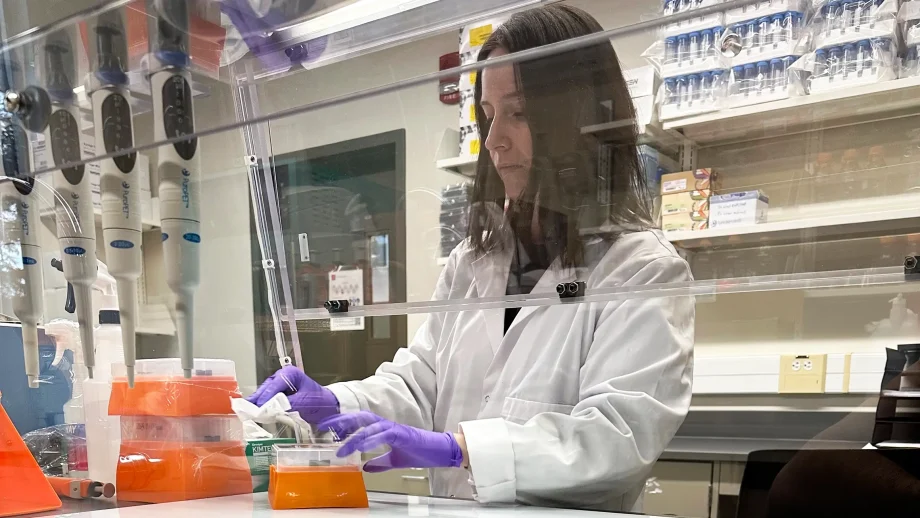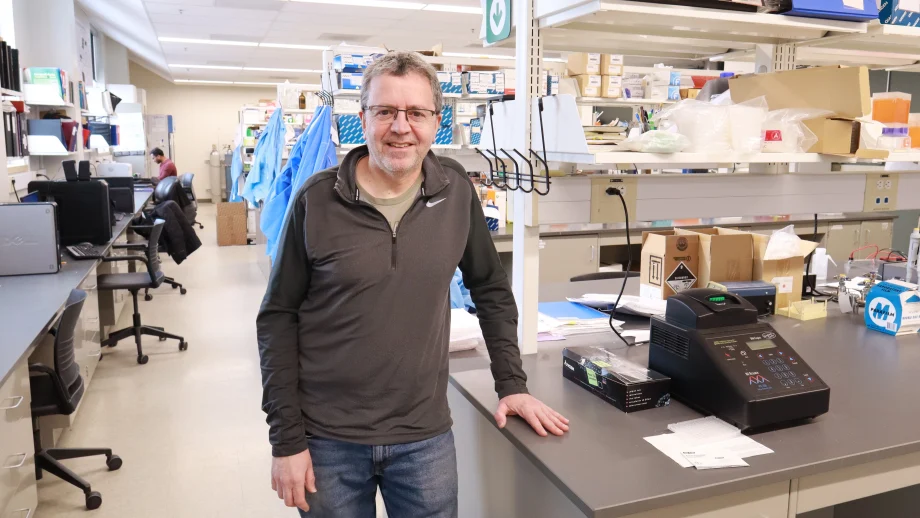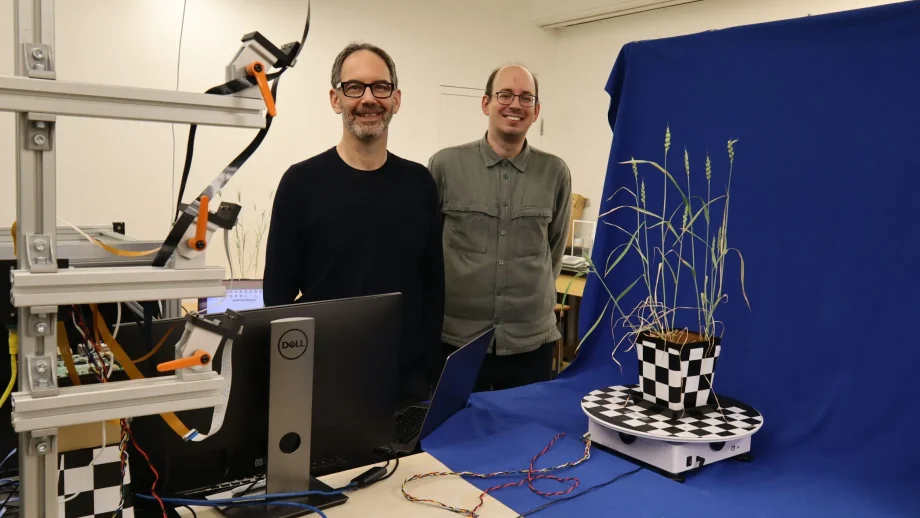Colorectal cancer is one of the most treatable cancers if caught early. However, it remains one of the leading causes of cancer deaths worldwide because of the lack of cost-effective, efficacious, and simple screening tests.
UWinnipeg graduate student Hailey Langford is working with Dr. Anuraag Shrivastav, who is committed to changing these grim statistics. Dr. Shrivastav’s research could reduce the mortality rate by creating a new screening test to detect colorectal cancer earlier. In hope of saving lives, he has developed a novel blood test that detects precancerous lesions and colorectal cancer.
After taking a course with Dr. Shrivastav, my eyes were opened to the new opportunities in science and cancer research.
Hailey Langford
To aid in this research, Langford has been granted a competitive Canadian Cancer Society Research Training Award valued at $65,000 over two years. This research of creating a less invasive test is part of her thesis for her Master of Science in Bioscience, Technology, and Public Policy.
Langford, from a young age, was always interested in the sciences. Having seen family members diagnosed with diseases, she wanted to learn how they could be treated.
“After taking a course with Dr. Shrivastav, my eyes were opened to the new opportunities in science and cancer research,” said Langford.
She graduated with a degree in biochemistry in 2022 from UWinnipeg, and first started volunteering in Dr. Shrivastav’s lab during her undergrad years. There she learned the best lab techniques and research methods.
Two years later, her diligence has paid off with a paid post-undergraduate research assistant position that allowed her to join the team of Dr. Shrivastav and his collaborator, Dr. Harminder Singh. Now she is working with Dr. Shrivastav on his new life-saving test.
While there are existing screening tests that include the current stool-based test and invasive colonoscopy, which also involves a difficult bowel preparation, Dr. Shrivastav’s new blood test makes early detection easy without the discomfort of the current screening methods.
“This test is also a more accurate, and cost-effective screening test for colorectal cancer that could reduce the economic burden and significantly increase colorectal cancer patients’ quality of life and, most importantly, their chances of overcoming the disease,” said Dr. Shrivastav.
A specific protein was discovered to be over-expressed in the peripheral mononuclear blood cells of colorectal cancer patients and individuals with adenomatous polyps. Polyps are benign growths that form on the lining of the colon, especially in adults over 50 years. Adenomatous polyps, however, are characterized as polyps with a high potential of transforming into colorectal cancer. It is, therefore, important that these polyps are discovered and removed before they can become cancerous.
“We hope this less invasive blood test will help detect colorectal cancer in patients early, and improve treatments and quality of life for the patients, and their families,” said Langford. “My niece’s mom died of cancer, which continues to inspire me to do cancer research to help find a cure and improve the lives of those who are touched by the disease.”





